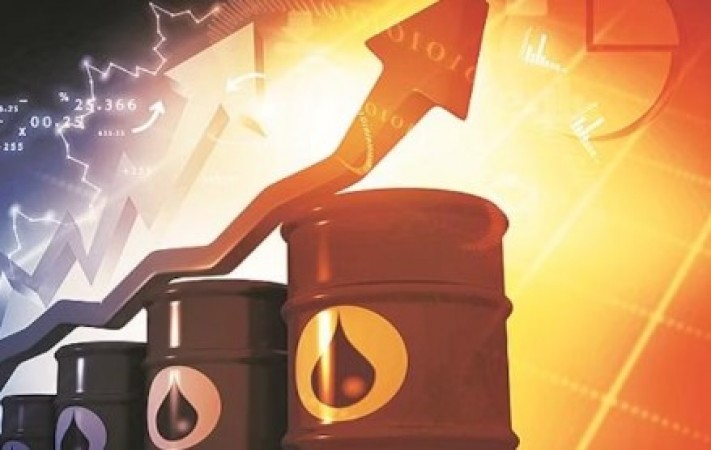
At the heart of the global economy, the oil trading industry serves as a fundamental catalyst for energy production, consumption, and overall economic development. This intricate network of operations spans across exploration, extraction, production, refining, transportation, and the pivotal stage of trading. A comprehensive understanding of the oil trading lifecycle necessitates a deep dive into the intricacies of each phase, highlighting the complexity and interconnectedness of this crucial process that drives the world's energy markets.For those seeking to delve deeper into the intricacies of the oil trading lifecycle, valuable insights and resources can be found at reputable source dedicated to energy market education and analysis.
Oil exploration constitutes a highly detailed procedure employing cutting-edge technologies to pinpoint potential reservoirs beneath the Earth's surface. Seismic surveys, utilizing sound waves, play a pivotal role in mapping subsurface structures, providing essential guidance for subsequent drilling operations. Various drilling techniques, including rotary and directional drilling, are employed to gain access to these reservoirs effectively. The evaluation of reservoirs is a critical phase, where factors such as permeability and porosity are meticulously assessed to estimate the quantity of recoverable reserves, contributing to informed decision-making in the oil extraction process.
Upon the identification of oil reservoirs, the intricate process of production unfolds. While onshore drilling remains a prevalent method, offshore drilling proves indispensable in accessing expansive underwater reserves. To optimize extraction efficiency, Enhanced Oil Recovery (EOR) techniques, such as water injection and gas injection, are employed. The subsequent phase involves refining, where distillation plays a crucial role in segregating crude oil into distinct components based on their boiling points. Following this, conversion and treatment processes refine these components even further, transforming them into valuable end products like gasoline and diesel, essential contributors to our modern energy landscape.
The transportation of oil involves a global network of pipelines, maritime shipping, and storage facilities. Pipelines form a crucial part of this infrastructure, efficiently transporting oil over long distances. Maritime shipping is employed for international trade, with large tankers moving vast quantities of crude oil. The industry faces challenges such as security concerns and is constantly innovating to enhance logistical efficiency through technological advancements.
Oil trading is the heartbeat of the industry, influencing and influenced by global economic trends. Understanding the factors impacting oil prices is essential. Supply and demand dynamics, geopolitical events, and economic indicators all play roles in market fluctuations. Various types of contracts and trading instruments, including spot contracts and futures contracts, contribute to the complexity of the trading landscape. Companies engage in both hedging to manage risk and speculation to capitalize on market movements.
The oil trading sector functions within a structured regulatory framework, encompassing both international and national levels. Organizations such as OPEC (Organization of the Petroleum Exporting Countries) play a pivotal role, exerting substantial influence on the dynamics of global oil markets. In an era marked by growing environmental awareness, the industry is witnessing a surge in the importance of environmental regulations, spurred by sustainability initiatives advocating for cleaner and more responsible practices. At the national level, regulatory bodies diligently supervise the sector, upholding strict standards related to safety and environmental considerations to ensure the industry's responsible and sustainable operation.
The trajectory of oil trading's future is being significantly influenced by technological advancements and shifts in societal norms. Transformative forces like blockchain and digitalization are reshaping the industry, elevating transparency and security in transactional processes. The integration of artificial intelligence in market analysis is empowering traders with valuable insights. Despite these advancements, the sector grapples with substantial challenges, notably in terms of environmental and social responsibility. Urgent attention is required to address pressing issues, such as the imperative transition to renewable energy sources and the increasing demand for enhanced social responsibility within oil trading companies.
In wrapping up the comprehensive journey of oil trading, encompassing exploration, extraction, production, refining, transportation, and trading, it becomes evident that this industry's intricacies demand a delicate balance between technological advancements and global cooperation. While the future promises innovation, challenges underscore the need for responsible practices, especially in light of environmental and social considerations. Navigating this multifaceted lifecycle necessitates a commitment to sustainability and resilience in shaping the energy landscape. Amidst these considerations, "Oil Era" emerges as a vital player, seamlessly integrating the complexities of oil trading with contemporary technological solutions, offering a gateway to a more efficient and responsible energy future.
Can One Lose Weight by Standing?
These people should not eat makhana, problems may increase
Hair gets damaged in summer! So learn from experts how to take care